At OCP Summit 2022, we had a few photos of ASUS systems showing off flexibility. ASUS had a rack that could be configured to handle OCP Rack V3 and V2 as well as 19″ systems. The flexibility in the units went beyond that and the company showed some interesting features we figured are worth quickly highlighting.
ASUS Flexible Storage at OCP Summit 2022
There is a server above what we are showing here that is a fairly standard 2U 12x 3.5″ server node that is a 19″ server being adapted to the Open Rack V3 environment. Below it, we have OCP-style half-width nodes with both front and internal storage. Normally, this internal pop-up configuration makes it easier to service drives that are inside nodes. The challenge, of course, is that near the top of racks, it becomes harder for technicians to service these drives.
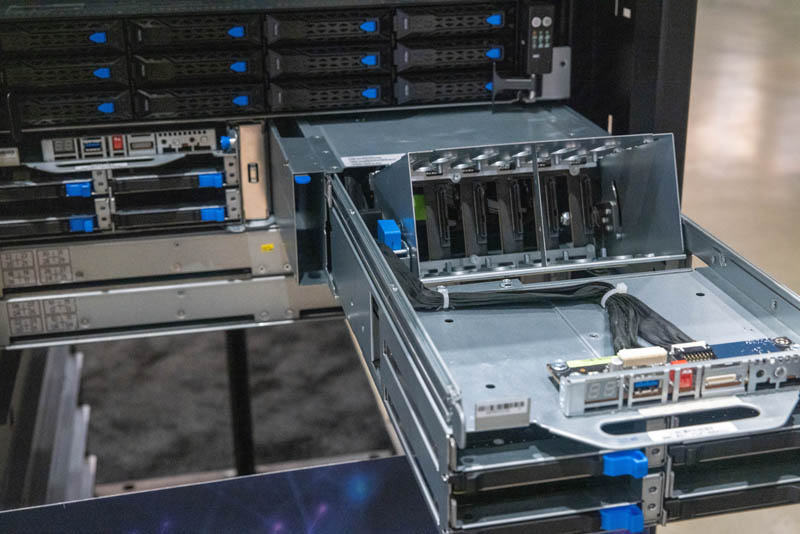
ASUS’ solution? The entire drive cage can alternatively tip downward instead to help service storage even when it is placed higher in racks. No need for ladders here.
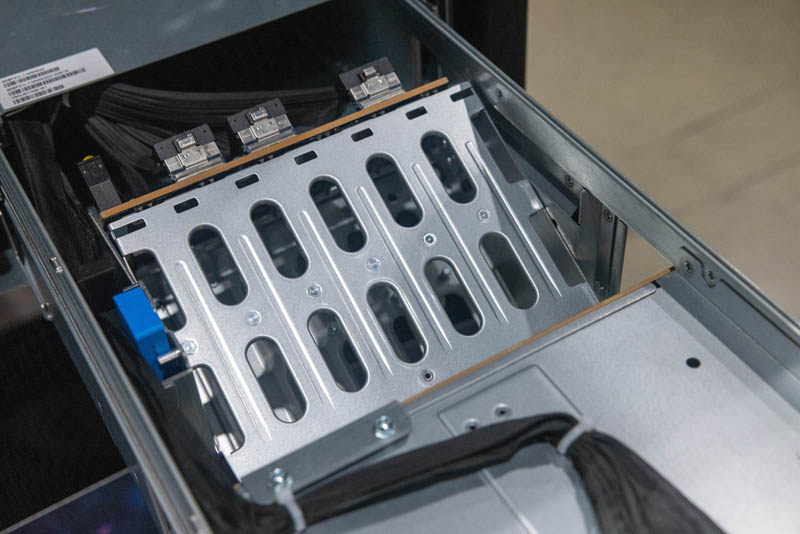
This was an Ice Lake Intel Xeon node, but it had a feature that looked different. On each side of the CPU we got a standard 4x DIMM slots for eight total per CPU in this dual socket server. There was, however, this blue slot.
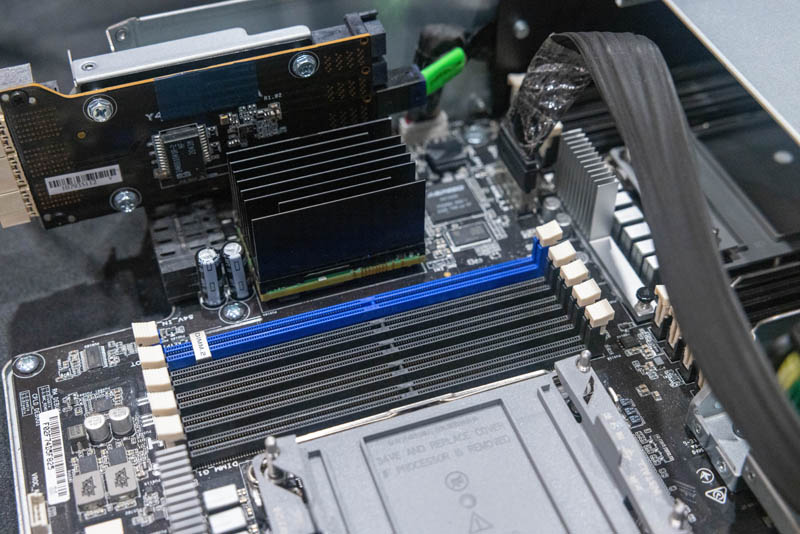
The blue DIMM slot is actually wired for PCIe and ASUS has an adapter that can put two M.2 SSDs onto this mounting location. We did not get photos of this as it was not shown at the show, but that is what it was for.
ASUS OCP Power Flexibility at OCP Summit 2022
The first demonstration ASUS showed off a fairly standard-looking pair of 2U servers.
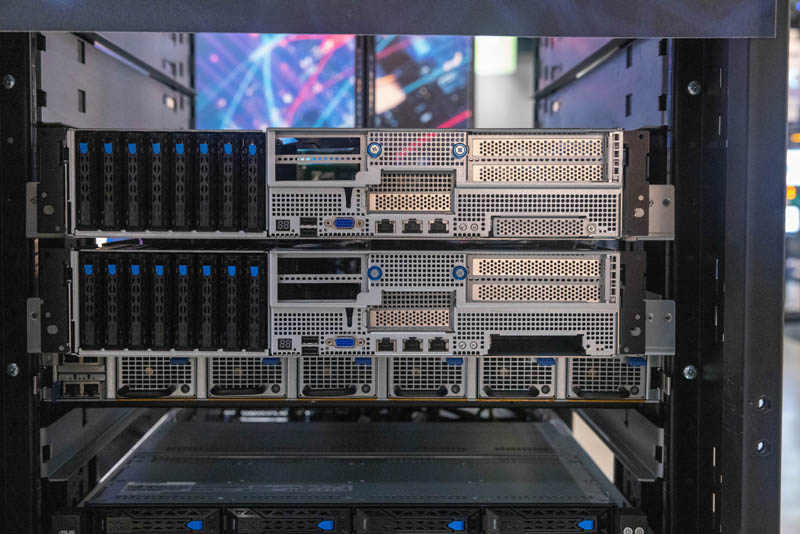
Below the second server is a power supply shelf powering a bus bar for Open Rack style nodes. Looking at the rear of the systems, we can see what is going on:
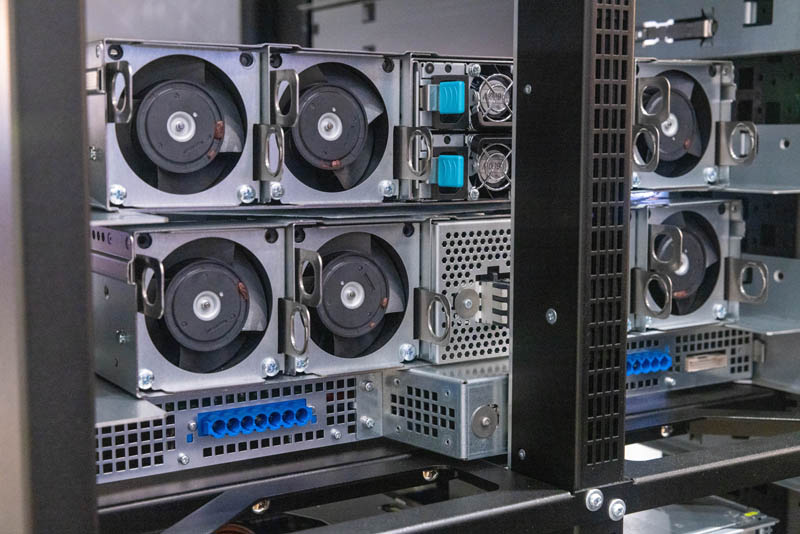
The top node is running standard redundant power supplies. The bottom unit is connected to the bus bar and the power supply shelf.
Final Words
These are small technologies, but they are also really interesting. OCP racks are a large market, but its growth is being slowed outside of hyper-scale. Still, many of the innovations that happen as part of OCP projects, the OCP NIC 3.0 being chief among them, end up moving out to the rest of the market. Maybe that is the M.2 SSD DIMM slot or the top/ bottom accessible storage. The power delivery flexibility could also help some organizations transition to OCP racks.

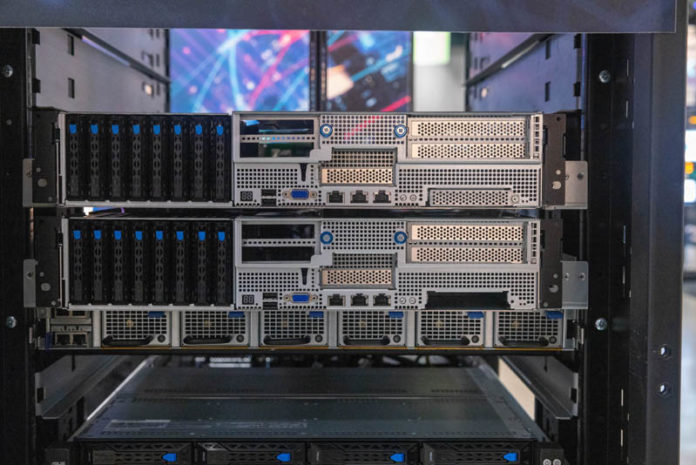
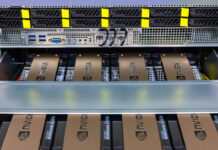
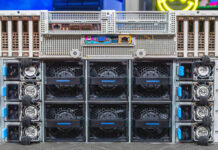

ASUS has had that DIMM.2 adapter in their high end desktop motherboards for a few years now. Super cool to see it migrate up to servers!